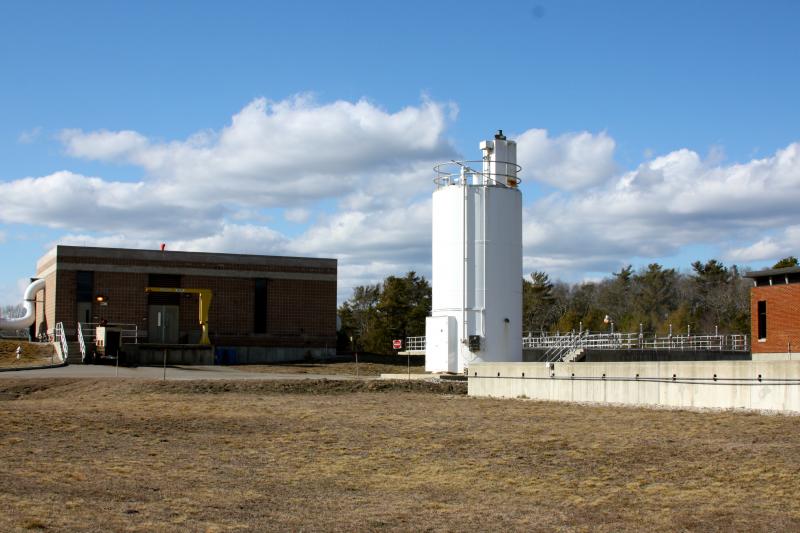There’s a moratorium on sewer hookups — what does that mean?
For at least the next nine months, the town cannot issue any new capacity commitments for the Wareham sewer system. The moratorium on new connections was approved by the Sewer Commissioners at their Oct. 22 meeting.
With the Wastewater Pollution Control Facility — the town’s water treatment plant — operating at about 76 percent capacity, the moratorium was an attempt to avoid having to put more permanent limits to sewer connections in place. If the facility had reached the 80 percent capacity threshold, it would have triggered a review process conducted by the Department of Environmental Protection.
If the Department of Environmental Protection’s review of the plant was unsatisfactory, the department would have then had the power to mandate changes without the Town of Wareham’s input. Chairman of the Board of Sewer Commission James Giberti said he didn’t know what the Department of Environmental Protection would have mandated, and no one wanted to find out.
“All I know is I don't want them to come in to tell us what to do,” Giberti said. “I would prefer that we stay ahead of it and do what we need to do to keep out of that scenario. Because the minute we have a third party coming in… it’s going to be expensive. More expensive than what we could do ourselves.”
There’s also a bigger problem behind the scenes: the town has signed future commitments to process more sewage than is physically possible at the current plant. They have signed up to process about 1.96 million gallons of sewage each day, although the plant can currently only process up to 1.56 million gallons daily.
A planned upgrade would increase the capacity to 2 million gallons a day, but that upgrade is in the earliest planning stages and would likely take years to complete.
The moratorium certainly sounds foreboding, but Giberti and Guy Campinha, the director of water pollution control in Wareham, said it wouldn’t have much of an impact on residential areas in town.
Impact on homes
In the parts of Wareham where residents are able to connect to the town sewer system, households should already be connected, Campinha said.
“People should have been hooked up years ago,” he said, adding that the department gives people a set window of time when they’re to hook up to the sewer.
Campinha said the sewer department is aware of at least about 70 households that ignored mandates to hook up to the sewer system and are still using septic systems. If those septic systems fail now that the moratorium is in place, fortunately, they already have a place in the sewer system.
“They’ll be able to hook up,” Giberti said. “When the system was put in to begin with, there was a certain amount of allocation for the area based on the number of homes that were there and based on the number of lots that were buildable. … Their flows have already been accounted for.”
The same is true of households in West Wareham at the Great Hill Estates Mobile Home Park, some of which are in the process of hooking up to the sewer system, Giberti said. He said the capacity for those homes was factored in before the moratorium was put in place.
Impact on new development
Some of the development projects in town have already secured their sewer capacity commitments and can continue as planned, including the Starbucks and Aspen Dental being built on Cranberry Highway, Campinha said.
But any planned developments that haven’t already secured sewer capacity commitments would likely be on hold until the moratorium is lifted.
“The sewer department has a tendency to be notified very late in the game when there’s a new development or a new project that wants to go online,” Giberti said.
That’s too late in the process, he said. Developers need to approach the sewer department sooner to see if there will be capacity.
“And anything right now that decides to come online, I don’t care what stage they’re in, if it’s new and it comes before us, they’re going to be squashed, unfortunately,” Giberti said.
But if it looks like a development won’t need the capacity commitment until after the nine month moratorium is set to end, Giberti said there could be a chance a project would be given approval for capacity in the future, outside the moratorium.
Cutting down commitments
Campinha said part of the problem was that sometimes when the town grants sewer capacity commitments, they aren’t used.
“A lot of the people we commit capacity to, they do nothing,” he said. “They hold onto capacity for years.”
Wareham has the power to “sunset” capacity commitments if they aren’t used within the first year, Giberti said. In the past, that policy hasn’t been enforced much, but Giberti said he’s afraid it will have to be enforced more strictly given the town’s limited capacity.
“That’ll be pretty much on a case by case basis,” he said. “If you come in to us 10 months into the time frame and say, ‘look I’ve run into a lot of snags, I can’t get this, I can’t get that, but it looks like I’ll be able to go forward five months from now,’ odds are we’d just extend [the capacity commitment] for you.”
Giberti emphasized that the commission isn’t trying to be unreasonable in its enforcement of the sunset policy or the moratorium.
“We’re just trying to protect the town as a whole,” he said.
The moratorium was put in place for nine months to allow time for equalization basins to be built, Giberti said. If the basins are built in that time, he said he saw no reason the moratorium would need to be extended beyond the original nine months.
Any delay in construction of the basins would most likely cause the sewer commissioners to extend the moratorium on a month to month basis, Giberti said. He said he thinks the basins will be completed on schedule, however.
Giberti also had outstanding questions about the 500,000 daily gallons of capacity commitment the town has promised to A.D. Makepeace in the Business Development Overlay District. He said he thinks some of that additional capacity is being used, but not all of it. The capacity has been promised to A.D. Makepeace for years.
“It’s something outside of the policy that we have,” Giberti said, referring to both the moratorium and the policy that allows the town to sunset unused capacity commitments.













